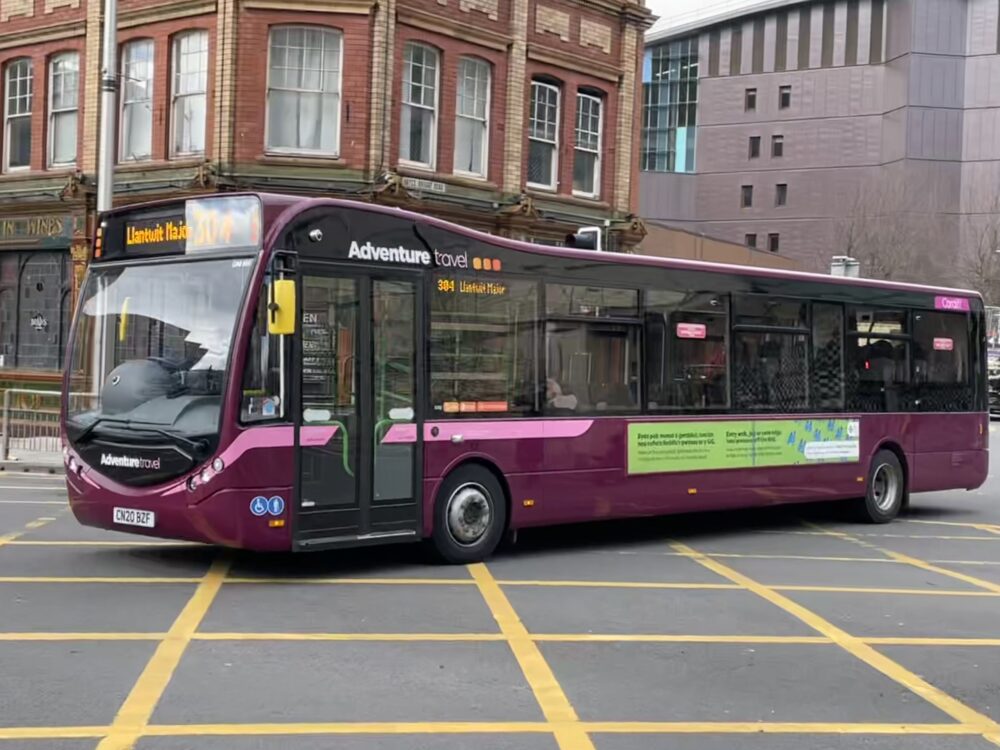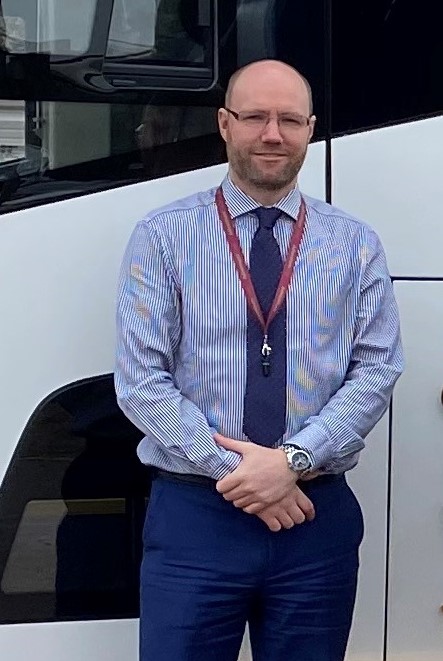Adventure Travel Responds to Welsh Government ‘Bus Shake-Up’
Leading Welsh bus and coach operator Adventure Travel has responded to Welsh Government’s announcement that the entire Welsh bus network could be merged to form a single network, but warns that much more clarity and detail is needed before the plans can be understood – and therefore considered – by the many groups of people affected.

Details about the proposal were revealed today (31 MARCH) stating that private bus firms would be required to bid to run services under a franchising model with Welsh Government taking much more control over the industry. Talks about a shake-up have been ongoing since long before Covid, but an official white paper was halted during the outbreak in 2020. With emergency pandemic funding currently in place to support operators as passenger numbers and associated revenue slowly recovers, partnerships between operators and Welsh Government / Transport for Wales have flourished. However, under a franchising system, Welsh Government ministers have made it clear that partnerships would be discontinued.

Adventure Travel Managing Director Adam Keen thinks the proposals can work in principle, but questions the significant funding stream required and the ability that bus operators will have to react to customer needs. Talking about the proposals, Adam said: “Bus franchising has been on the cards for a number of years so today’s announcement is not unexpected. Franchising is being discussed in various regions across the UK and indeed, some cities in England such as Manchester and Liverpool, are already quite advanced in their plans. Whilst there are certainly mixed feelings among various operators, Adventure Travel is supportive of the plans and we consider our company to be in a very strong position to adapt as required and therefore also in a good position to comment on the plans.”
Adventure Travel was bought by ComfortDelGro in 2018 with possible future franchising models in mind. Its sister company, Metroline in London, already successfully operates under the Transport for London (TfL) franchising system, further boosting the company’s position to adapt to a new model through experience gained there.
Adam continued: “We worked extremely cohesively with local authorities during the pandemic and it will be a great shame to end these useful, productive partnerships. The initial franchising plans are obviously in the early stages of development, but there are ‘holes covered in twigs’ where funding and investment is concerned. Running a franchise model for an authority is an exceptionally expensive process; one only has to look at the TfL model and the recurring funding issues that they have experienced to get a feel for how precarious it is. It is also crucial that Welsh Government – whilst wanting to take the reins – should engage with bus operators as ultimately, we are the experts at what we do. The amount of consideration, time and data analysis that goes into something as simple as a fare change is not clearly understood by most people and thus, I urge decision-makers to involve operators in building a model for Wales which is affordable, sustainable and deliverable. If Welsh Government get this right, this can ultimately be a good news story, not just for existing bus customers but for potential new customers too.”
Adam went on to state: “I can’t imagine that any franchising system would be implemented until at least 2026 given the enormity and complexity of the task ahead, which gives rise to concerns over what happens between now and then, as well as how the model works from that point on. Investment is also a significant concern, with new zero-emission buses each costing upwards of £100k more than a diesel variant and no firm funding or subsidy plans in place for those vehicles yet, unlike England and Scotland who have ‘Green Bus Funds’ and similar. Operators have collectively invested millions of pounds in fleet over the years in Wales and that level of investment will need to be increased further for zero emission buses, and then added to the costs of the franchise model.”




